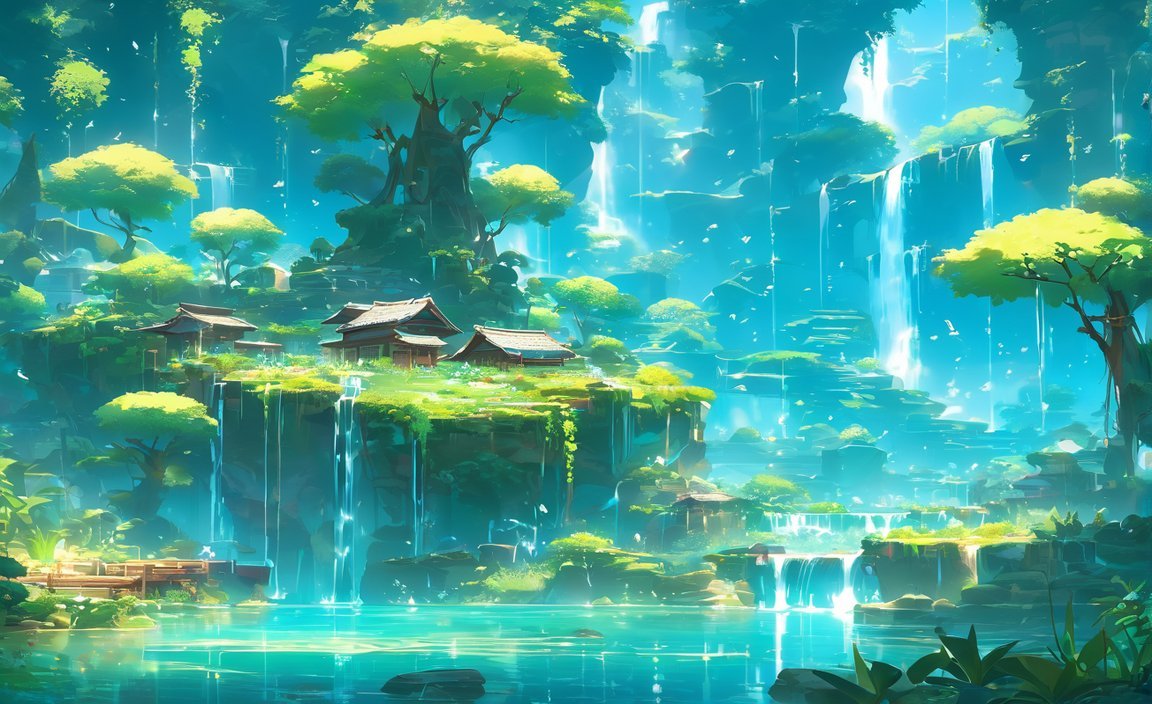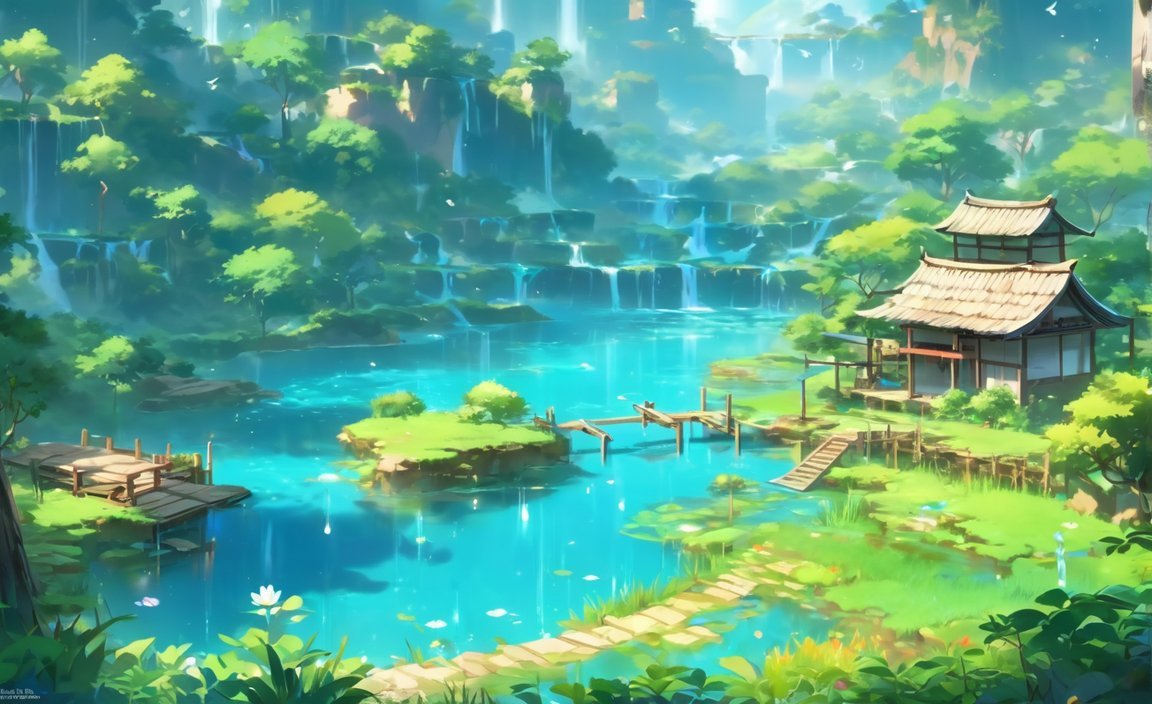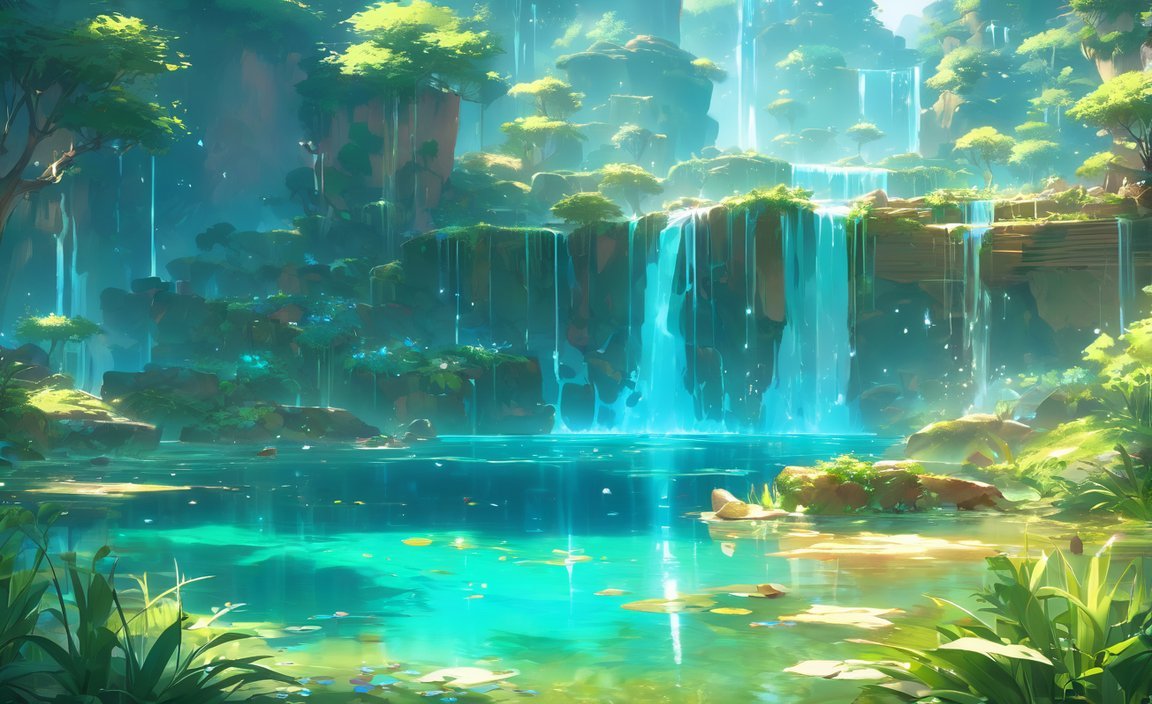Water—it’s essential for life, keeps our communities running, and fuels our industries. But as our global population grows and climate change disrupts weather patterns, the availability of freshwater is becoming increasingly uncertain. This is where the power of community action comes in. By working together to conserve water, we can protect this precious resource, ensuring a sustainable future for generations to come.
10 Importance of Water Conservation in the Community
Access to clean, abundant water is often taken for granted, but in many regions around the world, it’s a pressing concern. Water conservation, simply put, means using water wisely and minimizing waste. Let’s explore why this is so crucial for thriving communities:
- Safeguarding Wildlife Habitats: Rivers, lakes, and wetlands—these aquatic ecosystems teem with life, and they depend on a delicate balance of freshwater. Conserving water helps maintain this balance, ensuring that diverse species have the water they need to survive.
- Minimizing Pollution: Overusing water often leads to increased pollution. Wastewater treatment plants can become overwhelmed, and runoff from urban areas and farms can carry pollutants into our waterways. By using less water, we can lessen the strain on these systems and protect our ecosystems.
- Conserving Energy: Treating and transporting water requires a significant amount of energy. When we reduce our water consumption, we directly reduce the energy demand associated with these processes. This not only benefits the environment but can also lead to lower utility bills.
- Reducing Conflict: Access to clean water is a basic human right, but in many regions, it’s becoming increasingly scarce. Water conservation can help prevent conflicts over this precious resource, promoting cooperation and ensuring a more equitable distribution of water.
- Improving Community Health: Clean water is fundamental for sanitation and hygiene. When communities conserve water, they help ensure that everyone has access to this vital resource, reducing the risk of waterborne diseases and promoting overall well-being.
- Supporting Economic Growth: Conserving water can actually stimulate local economies. Industries focused on water-efficient technologies and businesses that prioritize sustainable water practices thrive when communities are mindful of their water use.
- Enhancing Food Security: Agriculture is a water-intensive industry. Conserving water helps ensure there’s enough to go around, supporting farmers in their efforts to produce the food we rely on.
- Preserving Water for Future Generations: The Earth’s freshwater supply is finite—we’re not creating any more of it. By using it wisely today, we can help ensure that future generations inherit a world where water security is not a luxury but a given.
- Empowering Communities: Collective action is a powerful force for change. When communities come together to conserve water, it creates a sense of shared responsibility and can lead to innovative solutions, fostering a stronger, more resilient community.
- Simplicity and Impact: You don’t have to overhaul your entire lifestyle to make a difference. Simple actions—fixing leaky faucets, taking shorter showers, and being conscious of our water use—can collectively have a significant positive impact.
Benefits of Water Conservation
| Benefit | Explanation |
|---|---|
| Protects wildlife habitats | Helps keep rivers, lakes, and wetlands healthy for the creatures that call them home. |
| Reduces pollution | Minimizes the amount of wastewater and runoff that can pollute our waterways. |
| Saves energy | Reduces the energy required to treat and transport water. |
| Lowers conflict risk | Helps prevent conflicts over scarce water resources. |
| Improves community health | Ensures access to clean water for drinking, sanitation, and hygiene. |
| Fosters economic growth | Creates jobs in water-efficient industries and supports sustainable businesses. |
| Contributes to food security | Helps ensure there’s enough water for agriculture, which is essential for food production. |
| Protects future generations | Ensures water availability for future generations. |
| Empowers communities | Fosters a sense of shared responsibility and inspires solutions. |
| Easy to implement | Even small changes in our water use can make a difference. |
Water is vital for the survival and well-being of animals. Discover the 10 importance of water to animals and how it impacts their lives. Click here to read more.
Water is essential for the growth and development of crops. Uncover the 10 importance of water to crops and how it affects their productivity. Click here to find out more.
Plants rely on water for their survival and nourishment. Explore the 10 importance of water to plants and understand its significance in their growth. Read more here.
Delve into the fascinating world of marine biology with these 10 important facts. Discover intriguing information about marine life and its impact on our planet. Click here to explore more.
If you’re a veteran, it’s crucial to understand your VA burial benefits. Learn 10 important facts about your VA burial benefits and ensure you utilize the resources available to you. Click here to access the information.
What is the Importance of Water Conservation?
We’ve established that water is essential, but why should we care about conserving it? Think of water as the lifeblood of our planet—essential for everything from the air we breathe to the food we eat. The catch? The kind of water we need most, freshwater, is a finite resource, and its availability is increasingly unpredictable.
When we waste water, we squander this precious resource. In drought-prone areas, already grappling with limited water availability, every wasted drop exacerbates the problem. Conserving water helps these communities stretch their limited supplies, building resilience against future droughts.
But water conservation isn’t just about saving water itself—it’s about saving energy too. Getting water to our homes and treating it to ensure its safety is an energy-intensive process. By cutting down on water waste, we automatically reduce the energy required for these processes. This translates into a lighter burden on power grids and, potentially, lower utility bills.
Education emerges as a crucial tool in our water conservation efforts. Many people are simply unaware of how much water they use daily or the straightforward changes they can make to conserve it. Schools, community centers, and even online platforms become valuable resources for spreading the word about water conservation and offering practical tips. Imagine a world where everyone knows how to fix a leaky faucet, water their lawns efficiently, and choose water-wise appliances—it could make a world of difference.
While we have a decent understanding of water conservation now, research continues to evolve. Scientists are constantly exploring even more efficient ways to manage and conserve water. The key takeaway? Stay curious, stay informed, and be open to adapting your habits as our understanding of water conservation progresses.
Why Do We Need to Conserve Water at 10 Points?
Imagine a future where turning on the tap brings only a groan of disappointment instead of a refreshing gush of water. While it might sound like a dystopian movie plot, it’s a very real possibility if we don’t prioritize water conservation. We’ve discussed the importance of mindful water use, but let’s delve deeper into why treating every drop like liquid gold is so crucial.
1. It’s Not Just About Us (Though It Is About Us, Too!)
Of course, we need water to drink, cook, and maintain hygiene. But water is also essential for growing the food we eat and supporting the vast biodiversity that calls our planet home. Conserving water isn’t just about ensuring our own needs are met—it’s about safeguarding entire ecosystems.
2. Saving Water = Saving Energy (and Money!)
The journey of water to your tap is surprisingly energy-intensive. Treating, transporting, and heating water all require power, and that power comes at a cost, both to the environment and your wallet. By reducing water waste, we naturally reduce the energy demand and associated costs. That sounds like a win for everyone.
3. Keep it Clean, Keep It Flowing
Here’s a thought: overusing water contributes to water pollution. Treating wastewater from our homes and businesses generates pollution. By simply using less water, we can alleviate the burden on wastewater treatment systems and contribute to cleaner rivers, lakes, and oceans.
4. Water Today, Water Tomorrow
While it might seem like water is endlessly renewable, the reality is that climate change is disrupting the Earth’s water cycle. Droughts are becoming a frequent occurrence, and glaciers that feed our rivers are shrinking. Conserving water now is akin to investing in a water-secure future for generations to come.
5. Healthy Water, Healthy People
Access to clean, safe water is a cornerstone of public health. Scarce or polluted water sources can lead to the spread of waterborne diseases and a myriad of problems for communities. Conserving water ensures everyone has access to this vital resource, promoting health and well-being for all.
6. Giving Our Aquatic Friends a Break
Remember those ecosystems we talked about? Rivers, lakes, and wetlands are the planet’s arteries, relying on a delicate balance of freshwater to thrive. When we overuse or pollute water sources, these ecosystems bear the brunt of our actions. Conserving water is about more than just pretty scenery—it’s about protecting the habitats of countless species that depend on them.
7. Droughts Happen, But They Don’t Have to Be Disasters
Droughts are a natural climatic phenomenon, but human activities are increasing their frequency and intensity. Conserving water builds resilience against these dry spells. By being mindful of water use, we can stretch existing supplies and lessen the impact of droughts on communities and the environment.
8. Living Sustainably, One Drop at a Time
Sustainability boils down to this: living within our means without compromising the ability of future generations to meet their own needs. Water conservation is a crucial piece of the sustainability puzzle, reminding us that our actions have ripple effects and that we’re all interconnected.
9. We’re all in This Together
Water conservation is not solely the responsibility of governments or corporations—it’s up to all of us. Collective action fosters a sense of shared responsibility and empowers individuals to make a difference. Every single drop saved contributes to a greater good.
10. Small Changes, Big Impact
The good news is that you don’t need to drastically change your lifestyle overnight. Incorporating small, sustainable habits into your daily routine can have a significant impact over time. Fixing leaks, taking shorter showers, and choosing water-efficient appliances all add up to substantial savings in the long run.
Key Takeaways:
- Water conservation is about protecting all life on Earth, not just human life.
- Saving water conserves energy, money, and the environment.
- We need to start thinking about water as the precious resource it is.
- Simple changes in our daily habits can have a major impact.
- Conserving water is a collective responsibility, and we’re all in this together.
20 Ways to Save Water Today and Make a Difference
By now, it’s clear that water conservation is essential. But how do we translate that knowledge into action? Fortunately, incorporating water-wise habits into our daily lives is easier than you might think. Here’s a list of 20 practical ways to start saving water today:
In the Bathroom:
- Turn off the tap while brushing your teeth: Make it a two-minute ritual—two minutes of brushing, two minutes of giving that faucet a break.
- Opt for shorter showers: While long, luxurious showers can be tempting, shorter showers are far more water-wise. Challenge yourself to a five-minute power shower!
- Fix leaks promptly: That dripping faucet or running toilet might seem like a minor annoyance, but they can waste a surprising amount of water (and money) over time. A quick fix can make a big difference.
- Install low-flow showerheads and faucets: These simple swaps can significantly reduce your water usage without sacrificing water pressure.
- Turn off the water while you soap up: Whether washing your hands or doing the dishes, turn off the tap while you lather. Every drop saved adds up.
- Check your toilet for leaks: Put a few drops of food coloring in your toilet tank. If it seeps into the bowl without flushing, you’ve got a leak that needs attention.
In the Kitchen:
- Run full loads in the dishwasher and washing machine: Instead of running half-empty loads, wait until you have a full load—it saves both water and energy.
- Reuse water whenever possible: Don’t pour that leftover pasta water down the drain! Let it cool and use it to water your plants. They’ll appreciate the extra nutrients.
Around the Yard:
- Water plants wisely: Water your garden in the early morning or evening when evaporation rates are lower. This allows plants to soak up the water more effectively.
- Invest in a rain barrel: Why not harness the power of free water? Collect rainwater and use it to irrigate your garden.
- Sweep, don’t hose: When it’s time to clean sidewalks and driveways, opt for a broom instead of a hose. It’s a great way to get some exercise and save water simultaneously.
- Compost, compost, compost: Composting not only reduces waste but also helps your soil retain moisture, reducing the need for frequent watering.
- Choose water-wise landscaping: Opt for native plants and drought-tolerant varieties. These plants are adapted to the local climate and require less water.
- Mulch around your plants: A layer of mulch helps lock in moisture and reduces the need for frequent watering.
- Water deeply, but less often: Instead of light daily sprinklings, water your plants deeply and less frequently. This encourages robust root growth and reduces evaporation.
Making It a Lifestyle:
- Be mindful of your water footprint: The food we eat, the clothes we wear, and the products we use all have a water footprint. Being aware of this can help us make more conscious choices that support water conservation.
- Support water conservation efforts: Many organizations are working tirelessly to protect our water resources. Consider supporting them through donations or volunteering your time.
- Educate yourself and others: The more we know about water conservation, the more likely we are to make positive changes. Share what you learn with friends, family, and neighbors.
- Be patient and persistent: Changing habits takes time and effort. Don’t get discouraged if you slip up—every bit of effort matters in the grand scheme of things.
- Choose water-efficient appliances: When it’s time to replace appliances, keep an eye out for the WaterSense label—these appliances meet specific water-saving standards.
Remember, saving water isn’t about making drastic changes overnight. It’s about incorporating small, sustainable habits into our daily routines. Together, through these individual actions, we can create a ripple effect that leads to a more water-secure future.
What is Water Conservation? 5 Points to Ponder
The term “water conservation” is frequently used, but what does it really mean? It goes beyond just shorter showers and turning off the tap—it’s about understanding that clean, usable water is not an infinite resource. It’s a precious commodity that requires our respect and protection.
Here’s a breakdown of what water conservation truly encompasses:
- Less is More: This is the most straightforward aspect. Using less water in our homes, businesses, and agriculture is the first line of defense. It’s about reducing our water footprint through mindful choices.
- Giving Water a Second Chance: Reusing water is a game-changer. This involves collecting and treating wastewater for purposes like irrigation, replenishing groundwater, and even industrial uses.
- Protecting Water Quality: Pollution poses a significant threat to our water sources. Industrial runoff, agricultural chemicals, and even household waste can contaminate rivers, lakes, and groundwater. Water conservation also means being mindful of what we put down our drains and supporting policies that protect our waterways.
- The Climate Change Connection: Water conservation and climate change are intrinsically linked. Treating and transporting water require a significant amount of energy, which often comes from fossil fuels. By using less water, we indirectly contribute to lower greenhouse gas emissions, mitigating climate change.
- A Collective Effort for Lasting Change: Water conservation is not a solitary pursuit. It requires individuals, communities, and governments working together to raise awareness, implement responsible water management policies, and support initiatives that promote sustainable water use.
While these five points provide a solid foundation, it’s essential to acknowledge that our understanding of water conservation is constantly evolving. For instance, recent research suggests that some water-intensive agricultural practices, which might initially appear wasteful, could potentially play a role in replenishing groundwater supplies in specific regions. This highlights the importance of considering local conditions and embracing nuanced solutions in water management strategies.
Ultimately, our planet’s future hinges on how well we manage our water resources. It’s about making conscious choices today to secure a brighter, more water-secure future for everyone.
What is the Importance of Conservation?
Conservation, in its broadest sense, is about protecting and managing natural resources for the well-being of present and future generations. It’s about recognizing that we are part of an intricate web of life and that our actions have far-reaching consequences.
Consider the vital role of water. It sustains life, shapes landscapes, and plays a critical role in regulating the Earth’s climate. Yet, freshwater—the kind essential for human survival—makes up a tiny fraction of the planet’s total water supply. As the demand for water continues to grow, so too does the urgency of conservation.
Forests offer another compelling example. Trees act as the planet’s lungs, absorbing carbon dioxide from the atmosphere and releasing oxygen. They also provide habitat for countless species, prevent soil erosion, and regulate water cycles. Yet, deforestation continues at an alarming rate, driven by factors such as agriculture, logging, and mining. Conserving forests is not just about saving trees—it’s about safeguarding the intricate systems that support life on Earth.
The good news is that conservation often starts with small, individual actions that, when multiplied across communities and nations, have a significant impact. These actions can include:
- Reducing Water Consumption: Taking shorter showers, fixing leaky faucets, and watering lawns efficiently are simple yet effective ways to conserve water.
- Conserving Energy: Opting for energy-efficient appliances, using public transportation, and reducing our reliance on fossil fuels all contribute to a healthier planet.
- Reducing Waste: Recycling, composting, and choosing products with minimal packaging are essential steps in minimizing our environmental impact.
- Supporting Sustainable Practices: This can include choosing sustainably sourced products, supporting businesses with environmentally friendly practices, and advocating for policies that protect our planet.
The importance of conservation extends far beyond our immediate needs. It’s about recognizing our interconnectedness with the natural world and ensuring a healthy, vibrant planet for generations to come. By making conscious choices today, we can build a more sustainable future, one where both people and nature can thrive.
What is the Importance of Water in Our Environment?
Water is often called the “universal solvent” because it has the remarkable ability to dissolve more substances than any other liquid. This unique property is what makes water essential for life as we know it. It’s the lifeblood of our planet, playing a fundamental role in countless natural processes that are easy to take for granted. Let’s explore some of the key reasons why water is so vital to our environment:
- Supporting Ecosystems: From vast oceans to freshwater rivers and lakes, water sustains a dazzling array of ecosystems. These ecosystems, in turn, provide essential services such as oxygen production, climate regulation, and nutrient cycling.
- Regulating Climate: Water plays a critical role in regulating Earth’s temperature. The oceans, in particular, act as massive heat sinks, absorbing and releasing heat slowly, which helps to moderate global temperatures.
- Shaping Landscapes: Over millions of years, water has sculpted some of the planet’s most breathtaking landscapes—from canyons carved by rivers to valleys shaped by glaciers.
- Essential for Agriculture: Agriculture, the backbone of our food supply, depends entirely on water. Plants need water for photosynthesis, the process by which they convert sunlight into energy.
- Supporting Biodiversity: The incredible diversity of life on Earth is intricately linked to the presence of water. Aquatic ecosystems, in particular, are home to a staggering array of species, many of which are found nowhere else on the planet.
- A Source of Renewable Energy: Water can be harnessed to generate electricity through hydropower, a renewable energy source that plays a role in reducing our reliance on fossil fuels.
- Transportation and Trade: Waterways have served as vital transportation routes for centuries, facilitating trade and connecting people and cultures across vast distances.
- Recreation and Tourism: From swimming and boating to fishing and birdwatching, water provides countless opportunities for recreation and tourism, contributing to both our physical and mental well-being.
- Cultural Significance: Water holds deep cultural and spiritual significance for many cultures around the world, often playing a central role in rituals, ceremonies, and beliefs.
- A Finite and Precious Resource: Despite its abundance on Earth’s surface, the amount of freshwater readily available for human use is limited. This makes it crucial that we use this precious resource wisely and responsibly.
Protecting and conserving water is not just about ensuring our own survival—it’s about preserving the intricate web of life that depends on it. By understanding the vital role water plays in our environment, we can make more informed choices that ensure a healthier, more sustainable future for all.













